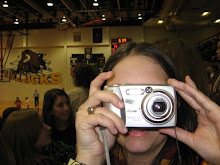An eclectic crowd filled the IU Auditorium Monday night to witness a presentation by legendary journalist Bob Woodward.
Woodward’s presentation centered on his soon-to-be, 4-book “Bush at War” series, exploring the Bush administrations military decisions form the war in Afghanistan until now.
Best known for his reporting with Carl Bernstein on the Watergate scandal for the Washington Post, Woodward spoke objectively about his two-day, three and a half hour interview sessions with President Bush, and about what he learned by using his investigative skills.
Woodward spoke candidly, revealing his shock when learning that President Bush did not consult his father, George Herbert Walker Bush, when deciding to go to war, and revealing Bush’s religious convictions, and how they impact his decision making.
“He told me, ‘I consulted a higher father,’” Woodward said, to laughter from the audience.
Woodward’s humor carried through the night, starting with a joke about President Bush’s literacy, to President Bill Clinton’s loquaciousness.
For the most part, however, Woodward was serious. He talked at length about the war in Iraq. He revealed that he had learned that the war was not planned well, and that estimations about its difficulty were vastly underestimated.
He was most engaging when speaking about the personality of President Bush. During his interview with the president, he was taken aback by Bush’s statement that we (the United States), “have a duty to free and liberate people” and a “zeal to free.” Woodward said such expressions show the most about the belief system of a leader, and warned to be on the look out for such phrases this election cycle.
He also spoke about the president’s determination, joking about the president’s self-coined title, “the decider.” Woodward spoke about how the president’s self-confidence keeps him in a “state of denial,” the title of Woodward’s newest book. Woodward said that when a very damaging intelligence report about a rise in terrorist attack came out, the president kept it silent, and made a speech the same day speaking about the new turn the US had made in Iraq.
The evening ended with a question and answer session. When asked what questions journalists are not asking, Woodward responded that they were all being asked, just not answered well. He expressed his support for unnamed sources (something he made famous) by saying that you sometimes can only get the truth by enforcing the security of those who have it, and believes unnamed sources are being underused in journalism today.
He was also asked about what lessons he has learned from his work on the Watergate scandal. He felt his most important lesson was to, “work at night.” Saying, “the truth comes out” when sources are made comfortable, usually over dinner or at one’s house. He also said he learned to go slowly, confirming everything, and making sure one has their facts straight.
He expressed his dislike for the “tell is now” journalism of the internet and cable news, saying it allowed for more mistakes, but said he likes blogs. He said that bloggers held people accountable in a way journalists did not.
He ended his answers by talking about the “demon of pomposity.” Woodward said that journalists should not feel they know everything, that they should become less egotistical, and that journalists need to keep asking questions (and that they should work at night).
Subscribe to:
Post Comments (Atom)

No comments:
Post a Comment